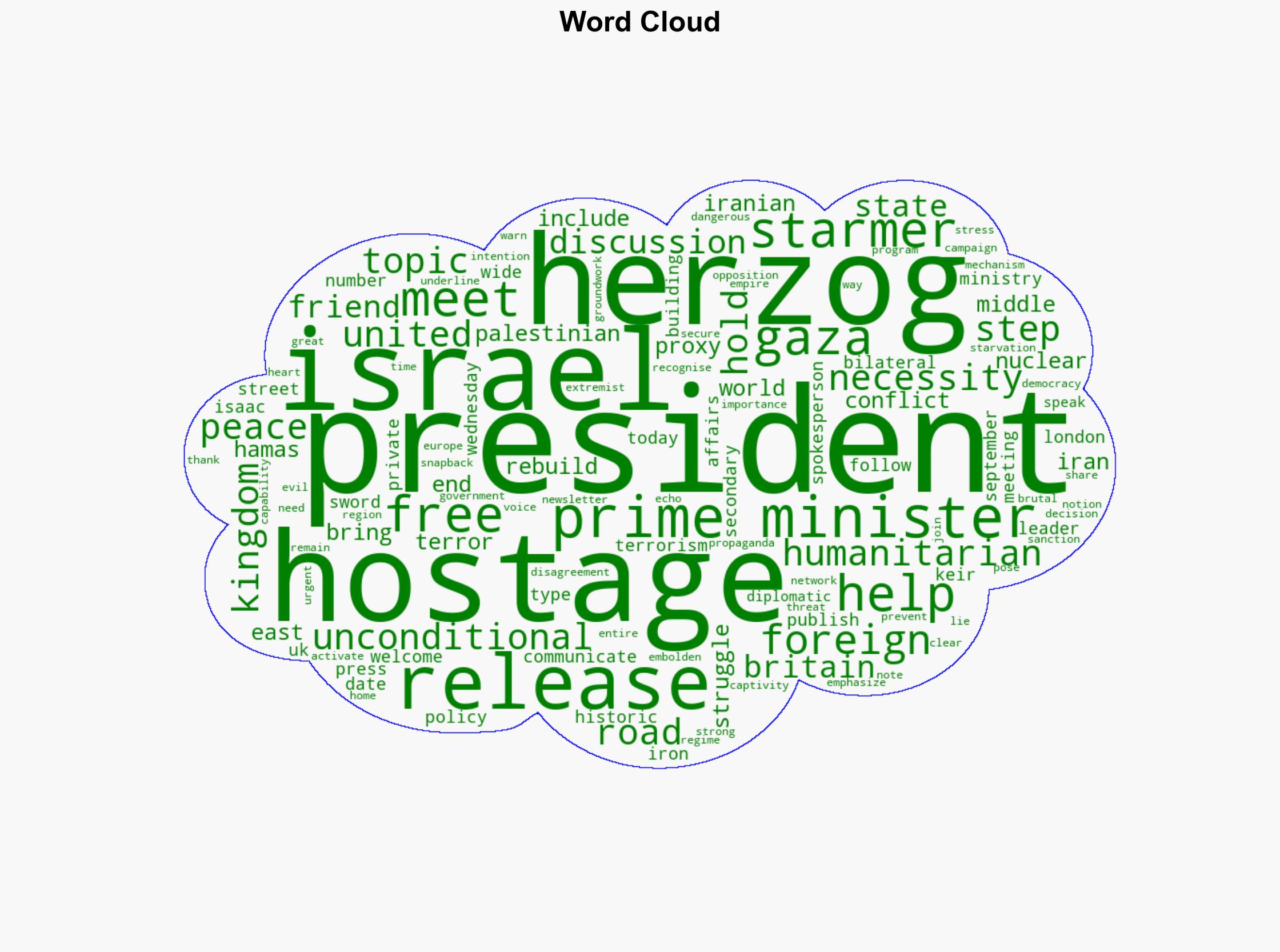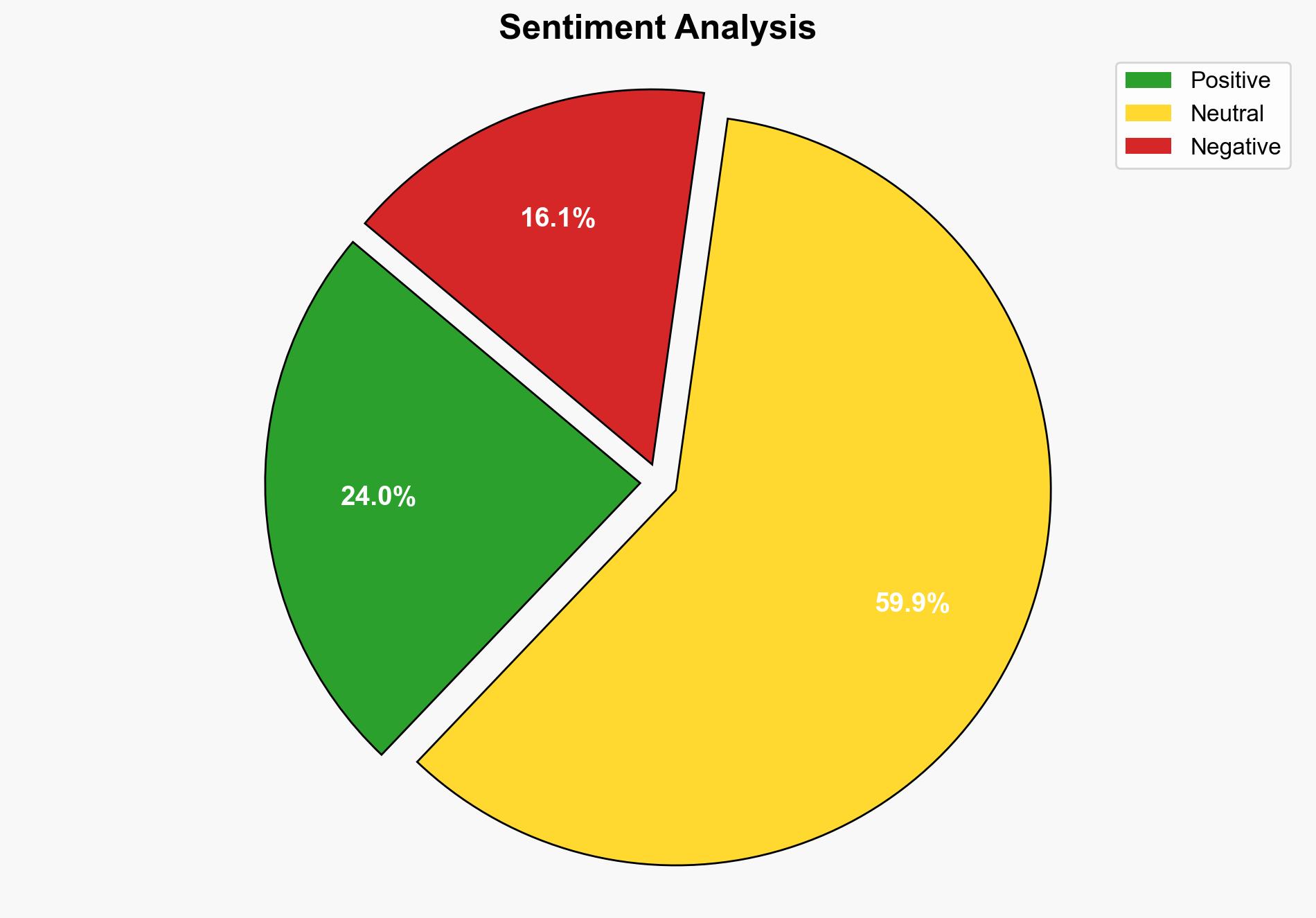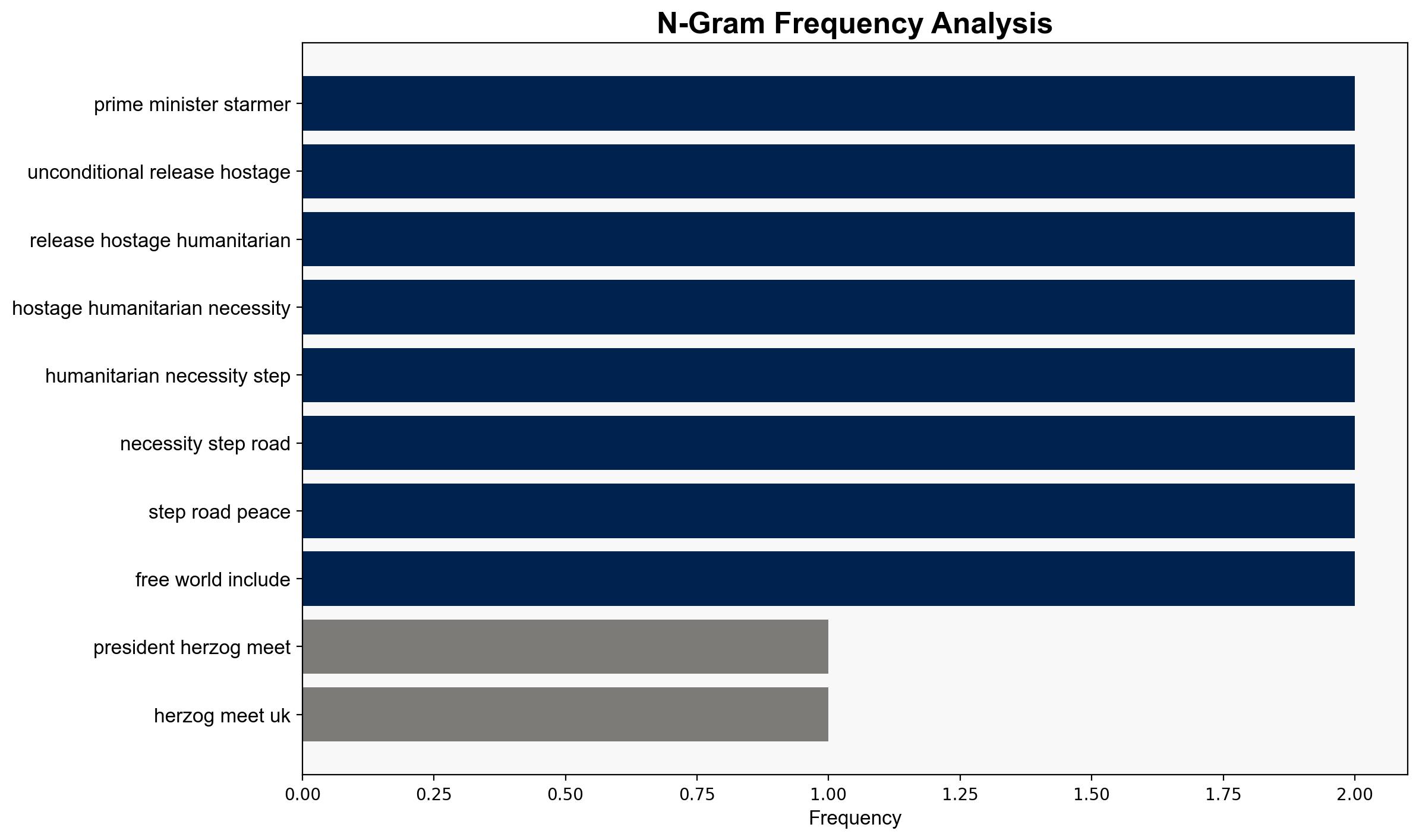President Herzog meets UK Prime Minister Starmer – Globalsecurity.org
Published on: 2025-09-11
Intelligence Report: President Herzog meets UK Prime Minister Starmer – Globalsecurity.org
1. BLUF (Bottom Line Up Front)
The meeting between President Herzog and Prime Minister Starmer primarily focused on reinforcing bilateral ties and addressing regional security concerns, particularly regarding Iran and the Israeli-Palestinian conflict. The most supported hypothesis suggests that the UK and Israel are aligning strategies to counter Iranian influence and address humanitarian issues in Gaza. Confidence Level: Moderate. Recommended Action: Enhance diplomatic engagement and intelligence-sharing between the UK and Israel to address shared security threats.
2. Competing Hypotheses
1. **Hypothesis A**: The meeting was primarily aimed at strengthening UK-Israel relations to jointly address regional security threats, particularly Iran’s nuclear ambitions and proxy networks.
2. **Hypothesis B**: The meeting was a diplomatic effort to mediate the Israeli-Palestinian conflict, focusing on humanitarian issues and the potential recognition of a Palestinian state by the UK.
Using ACH 2.0, Hypothesis A is better supported by the emphasis on Iran’s nuclear threat and the shared struggle against terrorism, as highlighted in the meeting. Hypothesis B is less supported due to the lack of concrete steps or commitments towards Palestinian state recognition.
3. Key Assumptions and Red Flags
– **Assumptions**: It is assumed that both leaders have a mutual interest in countering Iranian influence and that the UK is considering a strategic shift regarding the Palestinian state.
– **Red Flags**: The absence of specific commitments or timelines for action against Iran or in support of Palestinian statehood raises questions about the depth of the discussions.
– **Blind Spots**: Potential internal political pressures in the UK and Israel that may influence public statements versus private intentions.
4. Implications and Strategic Risks
– **Geopolitical**: Strengthening UK-Israel ties could lead to increased tensions with Iran and its allies, potentially escalating regional conflicts.
– **Economic**: Sanctions on Iran could impact global energy markets and economic stability in the region.
– **Cybersecurity**: Increased cooperation may lead to enhanced cyber defense capabilities but also provoke retaliatory cyber actions from adversaries.
– **Psychological**: Public perception of UK involvement in Middle Eastern conflicts could affect domestic support for government policies.
5. Recommendations and Outlook
- Enhance intelligence-sharing mechanisms between the UK and Israel to better anticipate and counter Iranian actions.
- Develop a comprehensive diplomatic strategy that includes humanitarian aid and conflict resolution initiatives in Gaza.
- Scenario Projections:
- Best: Successful diplomatic efforts lead to a reduction in regional tensions and progress in Israeli-Palestinian peace talks.
- Worst: Escalation of hostilities involving Iran and its proxies, leading to broader regional conflict.
- Most Likely: Continued diplomatic engagement with incremental progress on security and humanitarian fronts.
6. Key Individuals and Entities
– Isaac Herzog
– Keir Starmer
7. Thematic Tags
national security threats, cybersecurity, counter-terrorism, regional focus





